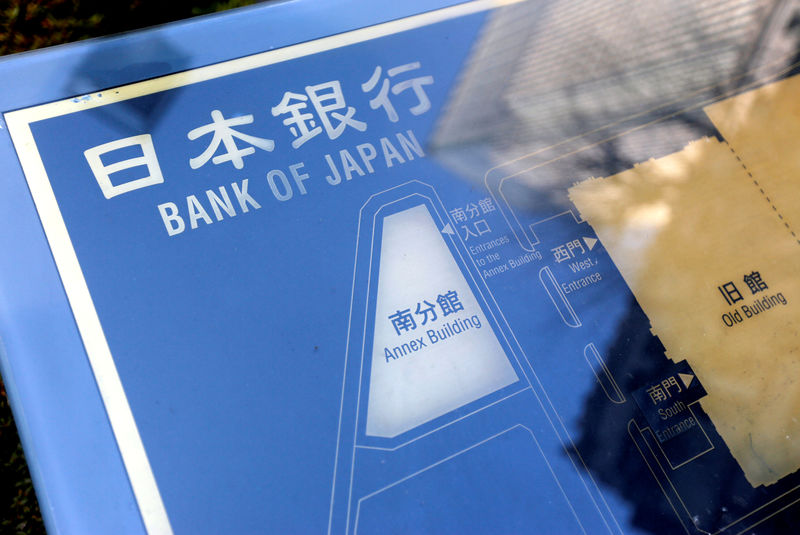By Leika Kihara
TOKYO (Reuters) - Bank of Japan policymakers disagreed on how quickly the central bank should ramp up monetary stimulus, minutes of their January rate review showed on Wednesday, as heightening overseas risks threatened to derail the country's fragile economic recovery.
While most members agreed it was appropriate to maintain the BOJ's current stimulus program, one of them said the central bank must stress its readiness to take "quick, flexible and bold" action including additional easing, the minutes showed.
"Given the timing of achieving the price target had been delayed, it was undesirable to adopt a stance of not taking action until a serious crisis occurred," the member was quoted as saying in the minutes.
Another member, however, said acting too hastily during times of uncertainty could lead to financial imbalances and unnecessary swings in the economy, the minutes showed.
Some in the nine-member board also warned that an increasing number of regional banks could be taking excessive risks to secure profits as years of ultra-low interest rates hurt their bottom line, the minutes showed.
"We need to look carefully at whether regional banks are lending in a way where they are earning returns that meet the risks," one of the members said.
The BOJ kept monetary settings unchanged at the January meeting, pledging to guide short-term rates at minus 0.1 percent and 10-year bond yields around zero under a policy dubbed yield curve control (YCC).
YCC IMPACT UNDER DOUBT
The BOJ faces a dilemma. Years of heavy money printing for asset purchases have dried up market liquidity and hurt commercial banks' profits, stoking concern over the rising risks of prolonged easing.
And yet, subdued inflation has left the BOJ well behind other major central banks in dialing back crisis-mode policies, leaving it with little ammunition to battle the next recession.
In an interview with Reuters on Monday, Isao Kubota, the influential chairman of a major regional bank, said the BOJ's ultra-loose policy is making it tough for commercial banks to earn profits out of lending.
"We are in the sixth year of this policy and, I think intuitively, the accumulation of the side-effects might be enormous," Kubota said.
With weakening global demand hurting Japan's export-reliant economy, the board debated the effectiveness of the current program in lifting prices.
One member said the BOJ's YCC policy has had only a limited impact in boosting prices and inflation expectations.
"This member said further analysis and consideration were needed on the relationships between inflation and the levels of interest rates or monetary base," according to the minutes.
A few policymakers saw room for more policy coordination with the government if overseas risks deal a severe blow to Japan's economy, the minutes showed.
While the minutes do not identify the name of the board members who made the comments, BOJ's Goushi Kataoka has publicly said stronger fiscal and monetary steps could be necessary to prevent a further economic slowdown.
Deputy Governor Masazumi Wakatabe is also considered by markets as among reflationist-minded members of the BOJ board.
Many in the BOJ are clinging to hopes that Japan's economy will emerge from the current soft patch in the second half of this year. But if conditions continue to deteriorate, the BOJ could face pressure to offer additional monetary support, analysts say.

Yet, BOJ Governor Haruhiko Kuroda has ruled out the chance of additional monetary easing over the near term. A well-known fiscal hawk, he also warned against the idea that government can spend recklessly to pull the economy out of the doldrums.